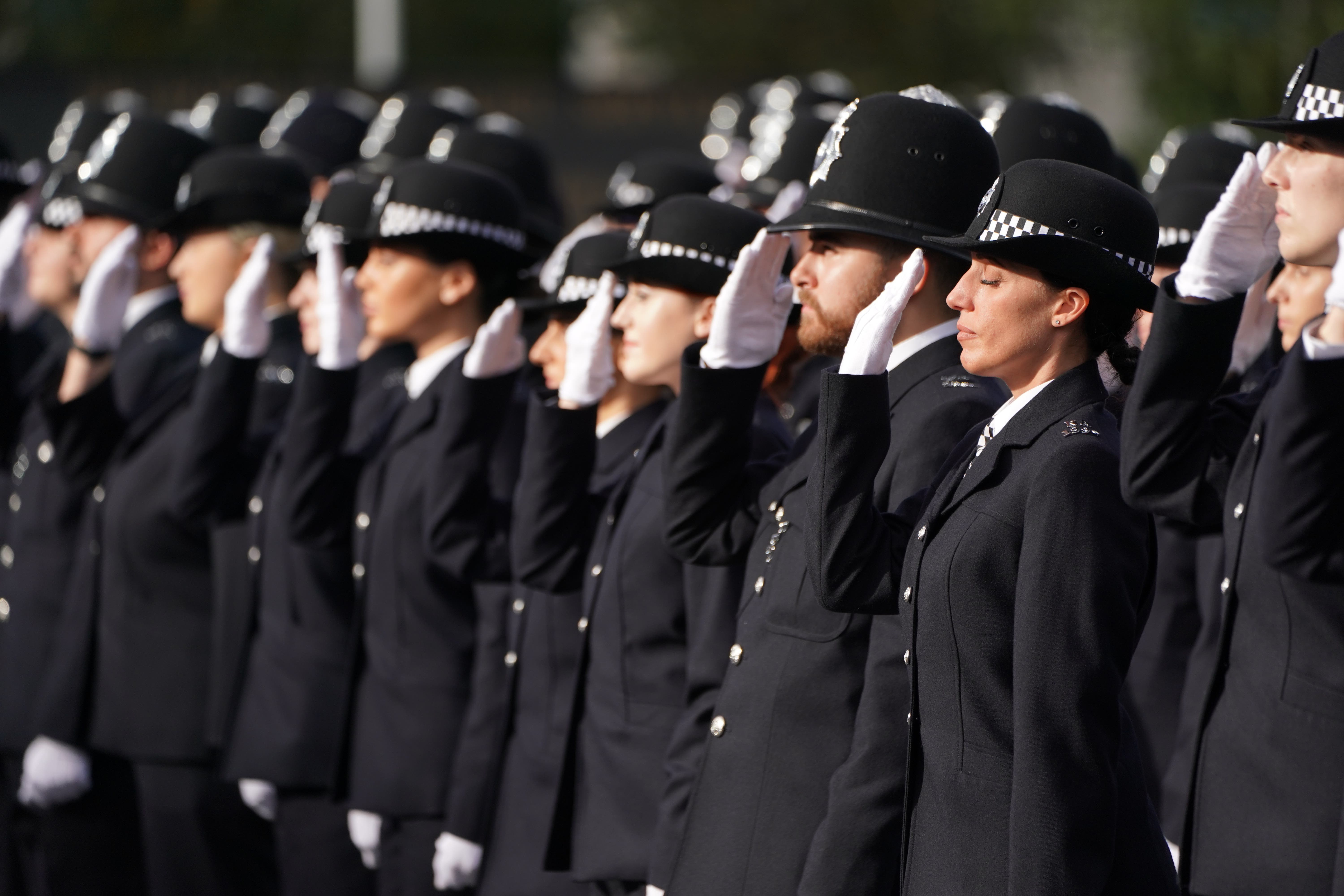Have police numbers really gone up, and does it make a difference?
More police on the beat doesn’t always mean solving more crimes, says Sean O’Grady


London’s Metropolitan Police is the only force not to meet a recruitment target set by the government. More than 20,000 new police officers have been hired in England and Wales – meeting a 2019 Conservative manifesto pledge – but Britain’s biggest police force missed its goal, according to Home Office figures.
What was the Conservative promise?
In the 2019 manifesto – cheerily titled Get Brexit Done Unleash Britain’s Potential – the promise wasn’t just to recruit them but to put them on the beat as well. “We want everyone to have the fundamental security that comes from safe streets and safe neighbourhoods – so we are backing our police, putting 20,000 more officers on the streets, and giving them the powers to tackle crime with stop and search,” it said.
Has the pledge been met?
Yes and no. As of 31 March, forces across England and Wales exceeded the 20,000 additional officer target by a total of 951. However, figures from the House of Commons, suggest progress may have been less impressive; according to these statistics, which are a bit older but measure officers on a “full-time equivalent” basis, the number of full-time equivalent police officers across the whole UK stood at 150,000 in 2019, rising to 164,000 at the end of March 2022 – an increase of 14,000.
Are things better than under Labour?
The number of UK officers rose from 155,000 in 2003 under Tony Blair to 172,000 by the end of the Gordon Brown administration in 2010. After that, Lib Dem-Tory coalition cuts saw the numbers reduced back to 150,000 by 2017. Thus, the number is roughly close to, or slightly below, where Labour left it. Shadow home secretary Yvette Cooper tweeted: “Tories are trying to take the country for fools on policing. They CUT 20,000 police officers. Now they’re just trying to patch up their own cuts. But there are still 6,000 fewer police on the beat. And 9,000 fewer police than if they’d increased with population growth since 2010.”
Have police numbers simply been ‘reset’?
Anecdotally, there is suspicion that the 20,000 officers who left in the 2010s had an impact far in excess of their numbers. Those who departed were generally more experienced and could offer mentoring to new recruits, and so the quality of neighbourhood policing and intelligence declined. The post-2019 drive for recruits in a tight labour market has meant not all are of the right calibre, and many leave after a relatively short time.
Sir Tom Winsor, chief inspector of constabulary, said last year that the promise to hire 20,000 more officers has increased the risk of introducing misogynist and racist recruits into the service – though recent high-profile cases indicate this problem is not confined to the latest wave of officers.
It is also worth mentioning that the number of police community support officers has been declining more or less constantly since 2010, and fell by six per cent last year.
Where are the officers?
All forces in England and Wales recorded an increase in numbers in recent years. In absolute terms, Greater London, Merseyside, the West Midlands and Cumbria have the most officers per head of population; Staffordshire, Hampshire, Lincolnshire and Wiltshire the fewest.
How does Britain compare with other European countries?
In 2020, England and Wales ranked 31st out of 35 nations for the number of police officers per 100,000 head of population. Northern Ireland was ranked 17th, and Scotland 23rd.
Do police numbers matter anyway?
Not necessarily. Research by the Tony Blair Institute shows “there is no direct relationship between officer numbers and police productivity.” It also found that only 6 per cent of all recorded crime results in a charge, compared to 17 per cent in 2014, and the process is taking longer than ever amid huge backlogs in the courts. “More officers on the beat will only take you so far if fewer crimes are solved and fewer offenders are brought to justice,” it says.
Did ministers deliver on stop and search powers?
Forces have been encouraged by the Home Office to use their search powers more frequently. The Public Order Bill proposes powers for stopping and searching people for objects connected to “protest-related offences”; officers would be given powers to stop and search people both if they had reasonable grounds for suspecting someone of having a relevant item and without needing suspicion if they are pre-authorised to do so by a senior officer.
Experts disagree on the efficacy of stop and search, but there is no doubt about the ethnic disparities: In England and Wales between April 2020 and March 2021, there were 7.5 stop and searches for every 1,000 white people, compared with 52.6 for every 1,000 black people.
Join our commenting forum
Join thought-provoking conversations, follow other Independent readers and see their replies
Comments
Bookmark popover
Removed from bookmarks